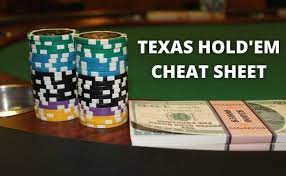Players who play limit Texas Hold ‘Em will argue that they make a lot of money because it’s one of the few online poker games that is relatively profitable. Even though it’s easy to win at limit games, I would argue that it’s a lot easier to lose at them, and in fact I’d say it’s more probable to lose at them than it is to win.
Sure, you can win at poker, specifically cash games, but over the long term you will undeniably lose at them. That’s because the sheer variance involved in the random movement of cards across the table is too great to overcome.
Why? Because in the long term you will have losing streaks just as long as you have winning streaks. And because no matter what game you play, your opponents will be constantlyaping more value on the hands that they play.
The problem with limit Texas Hold ‘Em is that you can easily lose all your money in one hand. Against weaker players, your mistakes can easily be costly. So how do you win at limit Texas Hold ‘Em?
The answer is to be patient and to wait for the right hands to play. This may mean that you turn a profit during the early parts of the game, when the betting is still lowest, but in the later stages when the betting has risen significantly, you need to be a completely different player.
This is one of the things that allowed me to continually make money playing 7meter – that I simply didn’t have to adapt to suit the betting patterns of the table. When I knew that the betting was going to raise, I’d change gears and start playing more aggressively.
One of the biggest mistakes I’d make and the one that prevented me from ever becoming successful at the game was playing weak hands and waiting for the right hand to play. What? Yes, you definitely need to choose your hands more carefully in limit Texas Hold ‘Em, especially with a smaller amount of money involved.
When you’re playing against players who are much stronger than you, your hand strength is not as important as your opponents. You are not going to be able to steal a lot of pots or take out players in one on one play, so you have to be a little more selective.
Here are some of the hands that you should raise with in limit Texas Hold ‘Em: AA, KK, QQ, JJ, AK, AQ, AJ, KQ, KJ. Anything else is just a coin-flip.
Now, when you’re in pre-flop and you have no pair, if you’ve seen raises before from players who are raising, you can call them all-in. You will have position, and you may even take out all the small and medium raises in one on one action. But, you need to have a better hand than the ones that are beating you or you won’t win.
In pre-flop, you should call all the raises if you have a better hand than you opponent. You don’t have to make a raise if you don’t have a hand, but you should make a solid hand by calling. If you have to call with a weaker hand than you opponent, consider folding.
In post-flop, if you have any draw, call all the raises. You should only raise with a hand that has the chance to outdraw your opponents hand. You shouldn’t call with middle pairs or other hands that are likely to cause the others to fold.
Once you get a hand, stick to it. Don’t change if you’re in early position or late, once a hand has passed 3 flops without you having a pair, you should consider throwing your hand away.
